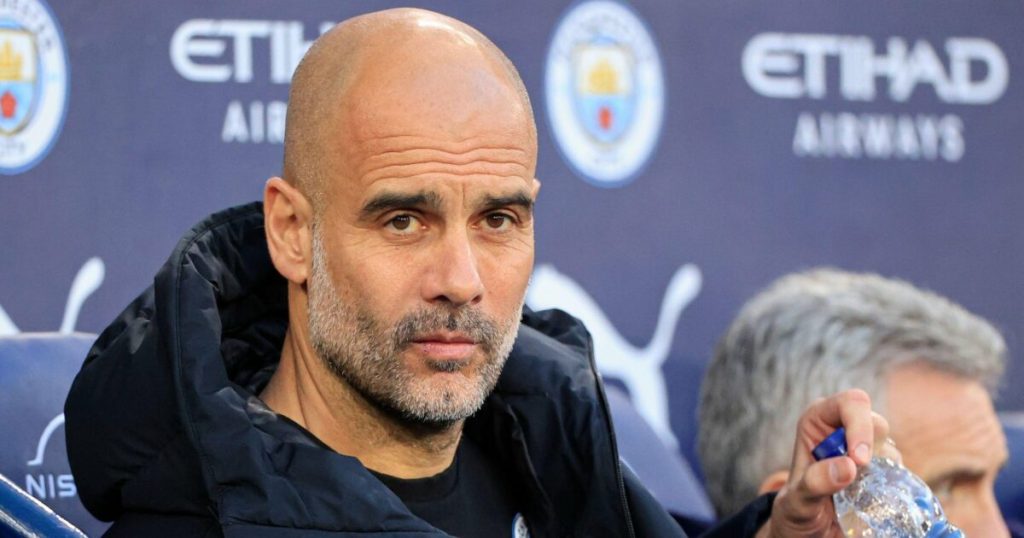Pep Guardiola, the renowned manager of Manchester City, delivered a deeply moving and impassioned speech upon receiving an honorary doctorate from the University of Manchester. While expressing gratitude for the recognition of his accomplishments in football and his philanthropic work through the Guardiola Sala Foundation, Guardiola’s words were primarily focused on the devastating humanitarian crisis unfolding in Gaza. The ongoing conflict, ignited by Hamas’s attack on Israel and the subsequent Israeli military response, had left Guardiola visibly shaken and profoundly disturbed. He expressed his anguish and despair at the escalating death toll, particularly the immense suffering endured by innocent children caught in the crossfire.
Guardiola’s speech transcended mere political commentary; it was a heartfelt plea for humanity and empathy. He stressed that his concern wasn’t rooted in ideology or taking sides, but rather in a fundamental respect for human life and a deep sense of shared responsibility. The plight of children in Gaza, he emphasized, resonated deeply with him as a father, evoking a profound fear and sense of vulnerability. He poignantly connected the suffering of Gazan children to his own children, emphasizing the universal nature of human life and the interconnectedness of our fates. His words served as a stark reminder that indifference to the suffering of others ultimately diminishes us all and that the consequences of inaction can have far-reaching and devastating repercussions.
The war in Gaza, sparked by Hamas’s October 7th attack, has claimed thousands of lives on both sides, predominantly civilians. The sheer scale of human suffering is staggering, with hospitals overwhelmed, infrastructure decimated, and countless families torn apart. Guardiola’s emotional response reflects a growing global outcry against the escalating violence and the urgent need for a peaceful resolution. The conflict has exposed the deep-seated complexities of the Israeli-Palestinian conflict and underscored the importance of international cooperation to prevent further bloodshed and address the root causes of the decades-long struggle.
Guardiola’s public stance on the Gaza crisis is not an isolated incident. He has previously demonstrated a willingness to speak out on political issues, notably his support for Catalan independence. This demonstrates a commitment to using his platform to advocate for causes he believes in, even if they are controversial. His outspokenness on Gaza adds his voice to a chorus of international figures calling for an end to the violence and a renewed effort to find a lasting peace in the region. His impassioned plea for humanity and empathy resonated deeply with many, highlighting the profound impact of the crisis on individuals far removed from the immediate conflict zone.
Within the world of football, other prominent figures have also voiced their concerns about the situation in Gaza. Mohamed Salah, the celebrated Liverpool and Egyptian forward, issued a powerful call for world leaders to intervene and prevent further loss of innocent life. Salah’s intervention underlines the growing awareness and concern within the football community about the humanitarian catastrophe unfolding in Gaza. These interventions highlight how sport, with its global reach and influence, can be a powerful platform for raising awareness and promoting peace and understanding.
Conversely, the case of Anwar El Ghazi, the Dutch winger formerly with Mainz, illustrates the potential repercussions of expressing views on sensitive political issues. El Ghazi was dismissed by his club following social media posts related to the Gaza conflict, sparking debate about freedom of speech and the role of athletes in political discourse. This incident highlights the complexities and sensitivities surrounding public pronouncements on the Israeli-Palestinian conflict, even within the seemingly apolitical realm of professional sports. While athletes have the right to express their views, it also underscores the potential consequences of such pronouncements, particularly given the often highly charged and polarized nature of the debate.
The situation in Gaza continues to be volatile and uncertain, with the potential for further escalation and humanitarian crisis. The international community faces the urgent challenge of finding a path to de-escalation and working toward a sustainable peace that addresses the root causes of the conflict. Pep Guardiola’s emotional plea serves as a powerful reminder of the human cost of the conflict and the urgent need for compassion, understanding, and a concerted effort to bring an end to the suffering. His voice adds to the chorus of those calling for an end to the violence and a renewed commitment to finding a lasting solution to this complex and tragic conflict. The response from figures like Guardiola and Salah within the football world demonstrates the potential for sport to be a platform for peace and reconciliation, even in the face of seemingly insurmountable challenges.


